epsom salts (magnesium sulphate)
Just found a large can of this at the back of the garden shelf..... have no idea what to do with it! Any suggestions? (only polite ones, please!)
Comments (39)
scarleta
15 years agoYOu can add it to your roses ( they love it) Spring or Fall not now.YOU can take a nice relaxing bath in it specially if you have sore muscles.Also can use in the garden but not right now..Its a good stuff.Keep looking who knows what else you may find there??? Just kidding here..
Embothrium
15 years ago"The science behind the use of Epsom salts is only applicable to intensive crop production in
situations where magnesium is known to be deficient in the soil or in the plants. It is
irresponsible to advise gardeners and other plant enthusiasts to apply Epsom salts, or any
chemical, without regard to soil conditions, plant needs, and environmental health"Here is a link that might be useful: Epsom salts.pdf
Related Professionals
Ashburn Landscape Architects & Landscape Designers · Towson Landscape Architects & Landscape Designers · Frisco Landscape Contractors · Hampton Bays Landscape Contractors · Hoover Landscape Contractors · Oak Harbor Landscape Contractors · Yukon Landscape Contractors · Madison Fence Contractors · Canton Fence Contractors · Gilbert Fence Contractors · Hoffman Estates Fence Contractors · Lincolnwood Fence Contractors · Prior Lake Fence Contractors · Tallahassee Fence Contractors · Tumwater Fence Contractorslilydude
15 years agoDolomite lime is a source of Magnesium, but it increases soil pH (obviously). Epsom salts is a source of Magnesium which does not increase pH. This is interesting for soil science wonks, but it doesn't mean you should start applying it to your garden. If your soil pH is too high for the crop in question, and if your Magnesium is too low, maybe it would be a good choice. But how would you know that? Answer: soil test. That still doesn't tell you if Epsom Salts is a good fix for your problems, and what rate to use it at. If you have the soil test done by a lab, maybe they can answer these questions.
scarleta
15 years agoI have been mixing a bit of epsom salts in my rose fertilizer for years and it makes a positive difference.Many people who grow and show roses do this also .About one Tbsp per big rose and half of it for smaller.I usually add it to my Spring feeding.
Gunnar's Mom
15 years agoIn Jeff Gillman's book, The Truth about Garden Remedies: What Works, What Doesn't & Why, he says, "By applying something, such as Epsom salts, without testing your soil, you are simply rolling the dice to find the cure. You may be right, but you may make worse."
-Au
Here is a link that might be useful: U. Minnesota Horticulture Dept.
Embothrium
15 years agoSame as with all applications of fertilizers made without any specific knowledge of the mineral content of your particular soil. Mineral content of irrigation water used also has an effect. Somebody thousands of miles away or even across the street (soils can vary markedly right on the same lot) who doesn't know your soil can't tell you which chemicals you may need to put on it to improve results.
kayli-gardener
15 years agoI have been sprinkling a small amount of epsom salts on my garden for the years. Do my plants benefit from it - I don't know for sure. But, I think they do! We have also been sprinkling a light dose on a public rose garden of 800 roses for the past 15 years and the roses seem to love it. My mother used to say "anything used in moderation" should be ok, and I tend to believe her. It is said that epsom salts on rose bushes will help them to produce new basal shoots. Hmm - I wonder if this is true!
I don't bother with a soil test (expensive) unless things seem to be out of whack in the garden.
Embothrium
15 years agoPoisoning your soil and plants can be expensive too. Ignorance is not always bliss.
lilydude
15 years agoBesides the soil test, you can also do a side-by-side test of two or more identical plants. Treat one of them with epsom salts (or whatever), and don't treat the other one. All other variables should be identical for both plants. No cheating! See if there is a difference in growth. It would be prudent to start out with a weak application, so that you don't damage the plant in case it doesn't like it.
kayli-gardener
15 years agoThat's a very good idea Lilydude. I'll be sure to give it a try and record my observations. Do you think that in an area of heavy precipitation it would tend to leach the Epsom salts through quickly? I'm just wondering if that's why I haven't noticed any negative results so far.
sam_wa
15 years agoWhile I agree that adding nutrients to soils without getting the soil tested isn't always the best way to go about things - there are a few things gardeners around here should know, so at least when they're "guessing" - it's an educated guess. For example, most soils around here (here being western washington, or other areas of the pacific northwest that experience a good amount of rainfall) are acidic to varying degrees, and certain nutrients leach out of the soil with rain. Nitrogen being one of the most readily leached, but magnesium and calcium also. Phosphorous, on the other hand, is pretty immobile in soil, and doesn't leach out. All things in moderation, I say.
Here is a link that might be useful: Nutrient Leaching
albertdean
15 years agoMy grass was nothing but YELLOW and ugly, like most of my neighbor's lawns. I spread 2 boxes of Epsom Salts on it this past July, and within 2 weeks it turned GREEN, Ireland GREEN! It's actually "lush". I spread it by hand, and can easily see one edge where I missed, that's still yellow. Areas around the rose bush, where I dumped it on, are now super super thick, like sod.
reg_pnw7
15 years agoAreas of high rainfall and coarse soils tend to have soils deficient in nutrients such as magnesium. Adding a tablespoon of epsom salt per rose bush once a year under these conditions is a relatively safe thing to do - the plants are likely to benefit at least a little, and little harm should be done. Adding more would just pollute the groundwater.
clay soils tend to not be deficient, ditto areas of little rain. I would recommend not using epsom salt in these areas without a soil test first.
I brew up a batch of alfalfa tea in the spring, and add a handful of epsom salt to a 33 gallon can of tea. I have very porous gravelly sandy glacial till soil and I get about 60" of rain a year. I've read the article posted by bboy, and I agree with her about 100%, but I also know that my garden's a pretty safe bet for the addition of a touch of epsom salt, given my soil type and rainfall totals.
Anyway, westgate, that's what people use epsom salt in the garden for.
charleney
11 years agoMy old Aunt Wilma, who was (said to be) high up in the Rhododendron society....told me that all I needed to keep my rhodys fertilized was Epson Salts and horse manure!! I always thought she would know what she was talking about. Haven't "dosed" my pink pearl rhody (monster ) in about 5 years. It looked a little chlorotic this year, but is still bearing monster flowers. Hmmmm! What now?
soilless
11 years agoI have a hydroponic greenhouse garden and I have noticed that the past two days my tomatoes have been pale green all my other plants (Peppers,Cauliflower,onions,cilantro) all fed by the same nutrient well, are doing fine. I added 2 TBBS of epsom salts to the 20 gallon well in hopes that it is a mag. deficiency(I deduced that from this forum conversation). I will keep you posted as to the tomato progress,or lack of. 12/10/12
seysonn
10 years agoIt has been a continuing difference of opinions about epson salt. But I have not heard a solid point about its side effectd to plants. As far as I know, plants would take what they require(N is being an exception that I know). So what would happen if a soil is naturally over rich with magnisium sulfate? Another poit is : Is it a pollutans ? How could that be, because epson salt ban be takaen orally by humans.
I use it with moderation, myself. I add about one TBsp to two gallons can, now and then and water my veggies.I want to know what are the possible side effects.
lilydude
10 years agoLet's assume that your plants respond positively to Epsom salt. It may be that your soil is deficient in Magnesium. If so, you can appy dolomite lime and get all the Magnesium you need for about 1/100th the price of Epsom salt. The dolomite lime will also reduce soil acidity, which is generally a very good thing in the Pacific NW.
Another possibility is that your plants are responding to the sulfate in the Epsom salt. Again, you can get sulfate from Ammonium sulfate or Potassium sulfate for a tiny fraction of the cost.
Maybe Epsom salt gets good reviews because it is much more soluble than dolomite lime. So it will work faster, and can be used as a foliar fertilizer.
The fact that your plants respond well to Epsom salt is not a very good argument for using it as fertilizer. It's like using caviar as a source of Nitrogen for your garden. Besides which, you don't know that your plants are responding well until you try a side-by-side test. Which reminds me, whatever happened to kayli-gardener's experiment?
gardengal48 (PNW Z8/9)
10 years agoI want to know what are the possible side effects.
Read the following - it pretty much sums up the entire Epsom salts 'mystique' :-)
seysonn
10 years agoInteresting discusion.
I am still clueless as to what are the bad side effects of using epson salt ? Anybody ?
BTW, that link given by gardengal did not open.lilydude
10 years agoTry this link. She doesn't mention dolomite lime. It's a much more reasonable source of Magnesium for gardening. And it's much slower to dissolve, so it's better for light soils. But this is assuming that your soil needs Magnesium.
I see that the shelves of garden supply stores are still packed with magical elixirs at astronomical prices. If you are taking good care of your soil fertility with products like lime, NPK fertilizer and compost, you don't need any magical elixirs.
Here is a link that might be useful: the myth of epsom salts
Wayne Reibold
10 years agoI was recently at a Rhododendron Q&A held by someone who worked at the Federal Way Rhododendron Species Garden and she suggested epsom salts for Rhododendrons.
gardengal48 (PNW Z8/9)
10 years agoshe suggested epsom salts for Rhododendrons.
For what reason? Unless there is a deficiency of either nutrient in the soil, there is absolutely no reason to apply. As with any other fertilizer or nutrient supplement, providing it when not needed can often be more harmful than not providing at all. Especially with the trace elements like magnesium and sulfur. These, particularly the magnesium, can cause imbalances with other, more essential nutrients making them unavailable and reducing or stunting growth. And because the epsom salts are so soluble, unnecessary applications allow leaching into groundwater as well.
Too often these recommendations for "magic plant elixirs" are made with an understanding of either the chemistry or the botany involved. More often, just because somebody read something or heard something and passed it along as some great hot new idea for your garden to burst out with amazing, magical, lush growth. If you do a baseline soil test, amend the soil - if necessary - as directed and use a good organic mulch on a routine basis, there is very little need to provide any other supplements or fertilizers. And none of these are that magic, all-purpose forumlation guaranteed to grow great plants...........that puppy just doesn't exist.
Wayne Reibold
10 years agoThe lady from the Rhododendron Species Garden who ran the Q&A suggested epsom salts to encourage blooming.
Re: getting soil tests, is it realistic in all situations? I have probably 100 rhodies on my 1 acre and the soil varies WILDLY all over the acre, to really do what is being suggested here I'd have to take a TON of soil samples and let's get real re: cost. I think that's why people look for suggestions of things to do. When I say wildly I do mean wildly, some of it is junk soil mostly full of fir needles and decomposing tree bark from fallen trees, other soil is "real" soil, some of it drains REALLY fast, some of it is a bit clay like, I have the whole enchilada and it can vary wildly within a few feet so doing a zillion soil samples just isn't realistic at all for my situation...
bluewillow09
10 years agowynswrld98, I have a tiny yard but a similar predicament. I guess because of cut and fill when it was built and varying types of fill used in parts of the yard over the years, there is hard, dense clay in some areas, and almost pure sand in some, and anything in between.
Are some things good for the whole garden, regardless? I.e., compost is good for improving all soil types, right?
Wayne Reibold
10 years agobluewillow09, glad you posted, I don't feel alone. I suspect people posting to take soil samples have pretty consistent soil and/or tiny lots. The people who push the soil samples are welcome to a tour of my property and I'd show them exactly what I'm talking about!
I read a lot of good things about compost and have started using it a lot, I did it as a top dress (raked in) for my lawn this spring and have been top dressing around as many shrubs/trees as I can especially where I know soil is poor.
At the Rhododendron Q&A I was at, I asked the presenter what to do with some rhodies I have that are solid fir needles and decomposing bark, when you dig about 12" deep near them you don't get anything that anyone would call "soil", it's literally just a shovel full of fir needles and decomposing bark from fallen trees. Anyway, I asked her if fertilizing and top dressing by these rhodies is a good idea or would taking more drastic measures and digging up the rhodies and amending the soil in the area/fertilizing the way to go. Her response was hands down dig them up, that simply top dressing with compost/fertilizing just isn't enough.
So I've started on a compost band wagon to try and help soil where it isn't as bad as described above but also not great. I think I'll take the Rhododendron lady's advice and try some epsom salts on rhodies that haven't been blooming to see if I notice any difference. I will limit it just to those that haven't been blooming for now.
laurell
10 years agoI have several raised beds and all of them have wildly different soil compositions, as they have been constructed at different times, some of them get a batch of compost and others don't, etc. I am far to cheap/lazy to do a soil test on each of them, but intend to do one on my tomato bed.
Just last night, I installed subterranean waterers - just 3" abs pipe with a bunch of holes drilled sunk 12" in the ground so I'm not wasting water on soil evaporation. Since it will be easy to "dose" some of the plants with magnesium, and not others, I'm thinking I may try doing half the bed with and half without as an experiment.
lilydude
10 years agoYou guys are talking about Epsom salts, but have you adjusted your soil pH by adding lime? The soils in the NW need lime desperately. If not, you are just re-arranging the deck chairs on the Titanic. When your car is on fire, you don't tidy up the seat covers. It sounds like you need an experienced gardener to help you prioritize.
gardengal48 (PNW Z8/9)
10 years agoAbout soil tests......if you have never had one it is not a bad idea to get one done just to see what you are working with. That is the only way you can determine if you have any nutrient deficiencies you need to address. (caveat: home test kits are pretty much worthless - pay the bucks and have a professional lab prepare the test). You don't do multiple tests around the property. You gather soil from a variety of areas (your prime planting areas) and mix it together in a single sample. Most labs will tell you how to prepare the test sample and will ask what you are growing - crops, lawn, ornamentals. That will help them customize your test results.
Once you get the results back, they will tell you your current nutrient load and if you need to amend at all. Generally, the only addition recommended will be nitrogen as that is the most mobile and transitory of the primary plant nutrients and the one most often lacking. And adding organic matter - compost - is the easiest and one of the most environmentally friendly ways to add nitrogen to an existing garden. Additionally, compost provides a full range of other nutrients in a low dose, organic process that encourages a healthy soil biology and discourages leaching into groundwater as one encounters with synthetic nutrients (from chemical fertilizers).
Compost also improves soil structure, loosening heavy or clay soils, improving drainage and adding a degree of moisture retention to very sandy soils. If used as a mulch it will supress weed development, reduce evaporation of soil moisture and provide insulating capacities. It does however make a rather fertile seed bed for windblown weed seeds so some monitoring is required.
I guess you are all going to do what you are going to do but fwiw, there is NO scientific evidence that dosing plants with epsom salts/magnesium sulfate encourages blooming. There is absolutely nothing in the product that affects a plant's biological inclination to bloom or not to bloom.
Understanding how necessary plant nutrients work - or don't work - would go a long way in dispelling some of these myths about "miracle" fertilizers (ie. MiracleGro and its cousins) and other miraculous plant potions.
gardengal48 (PNW Z8/9)
10 years agoThe soils in the NW need lime desperately
That is not necessarily true. Again, it makes little sense to come out with blanket statements about what any given soil needs without having a soil test done. From the WSU extension handout on Western Washington soils: " Most home garden plants grow best in moderately acid soil. Soils with a pH from 5.5-7.0 do not need soil amendments to adjust the pH level. "
Western Washingon soils tend towards the slightly to moderately acidic - 6.0 to around 6.7. Since by far the widest selection of plants prefer a pH in this range, there is seldom a need to lime in general. In fact, increasing soil acidity is more often desirable for this area than reducing it. Even the typical recommendation to lime one's lawn annually is a bit out of touch with reality. The development of moss is not restricted to just low soil pH but to a whole host of other factors that are often completely overlooked. And lawn grasses grow perfectly well in our acidic soils too.
lilydude
10 years agoGardengal, every single input I have read or heard since I started gardening here in 1980 is that most of our west-side soils are highly leached and acidic. If you google "pacific northwest soil ph" every result will tell you that our soils are leached and acidic. When I tested my soil in Portland, it had a pH of roughly 5.2. When I test my soil in Kalama with pH paper, it gives me around 5.5. The native plants in this region are largely acid-loving plants. When I took soil science classes at OSU, we were told that the region was highly acidic. The only exception is that the soils east of the Cascades are naturally less acid, and have been acidified by use of nitrogen fertilizer.
The Timber Press Guide to Gardening in the Pacific Northwest, page 295: "In most parts of the Pacific Northwest, as in other climates with high rainfall, unamended soils are strongly acidic, about pH 4.5 to 5.5."
A series of soil tests done for soils in my area by an ag lab shows pH from 4.9 to 5.2. I have the report. The local soil conservation guy wrote this in a letter to me: "On pasture and hay ground I would suggest beginning with a fall application of up to 1000 pounds of lime per acre. This won't achieve the desired pH level in the first growing season, but should adjust pH levels in the right direction and make a visible improvement in plant health. Annual lime applications and pH tests will be needed for a number of growing seasons in order to achieve and maintain a desired pH level."
gardengal48 (PNW Z8/9)
10 years agoWhat can I say - your information disagrees with the information published by WSU, with my own college courses and with the soils I encounter on a professional basis as a consulting horticulturist.
In my experience, it is very unusual to encounter a pH lower than 6.0 and most - at least in the Puget Sound area - run around 6.3-6.5. I've linked to a publication from WSU regarding this topic.....I suggest particular attention to the text after "So where does the average gardener go with this information? No action may be needed."
Here is a link that might be useful: the need for lime in the garden
lilydude
10 years agoI think you may have an unusual situation up in the Sound region. You may have rain shadows, which directly correlate to less leaching and higher pH. Or you may have geologic formations loaded with Calcium. Down my way, the soil is extemely acidic.
Wayne Reibold
10 years agoRe: soil testing, can someone explain to me regarding mixing multiple soil samples together from different places into one soil sample and get it tested makes any sense at all?
What if area #1 is lacking xyz, area #2 is lacking abc, donâÂÂt you want to apply xyz to area #1 and apply abc to area #2? Mixing it all together makes no sense to me at all, if you want to spend the $$ for a soil test you need to do it from a specific area that youâÂÂre interested in finding out the soil condition and add whatever you need to THAT AREA to âÂÂfixâ it.
Someone explain the logic to me of mixing potentially wild different soils together into one sample and getting it tested that way.
gardengal48 (PNW Z8/9)
10 years agoI certainly don't want to beat this into the ground but I doubt that is an issue at all. In fact, studies done by the U of W Department of Forestry in an old growth forested watershed in Olympic National Park - an area with some of the heaviest annual rainfall in the continental US - measured an average soil pH of 6.2.
Suffice it to say that every circumstance is going to be somewhat different. That's why it makes sense to have at least a baseline soil test done. And why it is not practical to make broad statements to the effect that all PNW soils need liming. Some may; many may not. And it depends a great deal on what one is growing as well.
seysonn
10 years agoTo garden gal,
Thanks for the link. I read it What I gathered is that what they said conradicts what you have concluded.The basis for soil acidity is due to continuous raiflal thus causing "leaching" positive ions. Also, most fertilizers (with Nitrogen) tend to increase acidity again. So here we go, rainfal and feeding nitogern go hand in hand to increase acidity.
Back to to topic, i,e, epson salt(magnisium sulfate):
Both Magnisium and sulphor reduced acidity. But what happens when they are leached? The answer is the acidity goes higer(=lowerin pH).
Therefore , application of epson salt can act like a dual edged sword, providing replacement for the leached magnisium AND helping to reduce acidity.Sombody here mentioned that leaching excess epson salt can go into ground water...(so forth). But how can a trace of epson salr can be that bad? Actually, epson salt can be taken orally(read the instructions on the package and consult youur doctor).
So far I have not read a convincing logical reason against epson salt application in garden and on lawns.
gardengal48 (PNW Z8/9)
10 years agoPerhaps you did not read carefully enough:
"So where does the average gardener go with this information? No action may be needed." (emphasis mine)
The link goes on to say that for landscape trees and shrubs, lawns and even most veggies, soils with a pH of 6.0 to neutral or slightly higher are pretty much ideal and "no concern necessary about liming soils" and "no liming is necessary". So what exactly about that contradicts what I said?
Soil acidity is determined primarily by the mineral composition of the area and the amount of organic matter and secondarily by rainfall amounts. Leaching is by no means the primary factor. While it occurs of course, it is not always or even consistantly the overriding reason behind soil acidity. As the link notes, soil acidity in this region is due in part to the wet conditions.
If you have found "no logical reason" against the use of epsom salts, I'd be delighted if you could enlighten us with any convincing scientific argument that documents the benefits of epsom salts for anything other than a magnesium deficiency or excessively acidic (below 5.0) soils. I have yet to discover any that was anything more than anecdotal.
And did GA become part of the PNW when we weren't looking?? :-)
seysonn
10 years agoHi gardengal
Read these two paragraphs, plse.
"Soils in western Washington develop acidity in part because wet conditions cause leaching of nutrients from the top layers of soil. Some of the nutrients washed down are the positive ions of calcium, magnesium, and potassium that help to raise the soil pH. As these ions are removed, they are replaced by hydrogen and aluminum which increase soil acidity. Many of you may have lived in arid sections of the American West where the soil is distinctly alkaline.
High pH levels also tend to occur where the native rock is calcium-rich limestone (think of the "white cliffs of Dover"). Native rock in western Washington isn't limestone. Growing plants also remove calcium and magnesium from the soil. Also, continuous application of some forms of nitrogen fertilizers can increase soil acidity: ammonium sulfate, ammonium nitrate, and urea are all common sources of nitrogen that tend to increase acid-forming hydrogen ions in the soil. "'
end of quoteI tried to highlight and underline but did not work.
Anyway, principally, western Washington soil tends to get acidic , ESPACIALLY when the land is cultivated, Nitrogen added,..THe way to increase positive ions common practice is to add lime(calcium). Magnesium in epson salt also can be benefitial(as stated above). This is separate from magnesium deficiency. That is why when I add sweetner or epson salt to lawn I can see a difference. Because both of these reduce acidity. Probably grass neither needs extra magnesium nor calcium. So then at the given optimal pH, the nutrients become more readily available.The above quote is a good scientific analysis. But the author's opinion that most places pH is fine is TOO GENERAL and also contradictary. How could soil pH can correct itself, in a farm, in a garden without intervention ?
By The WAy: Now I am a Western Washington Resident.
.

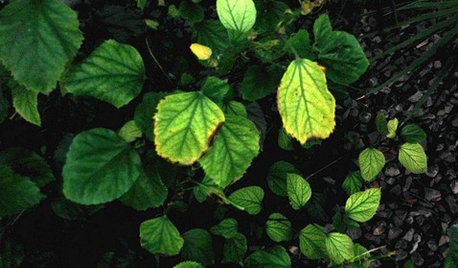
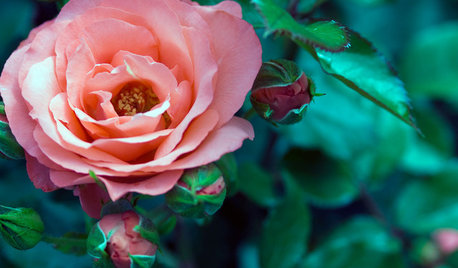
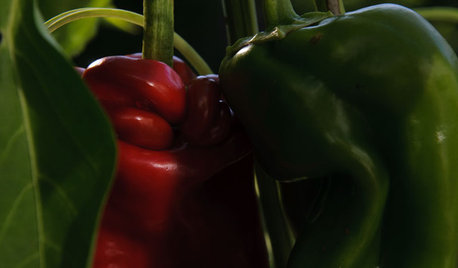









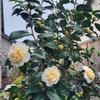
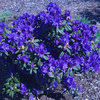
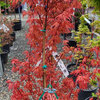
Karchita